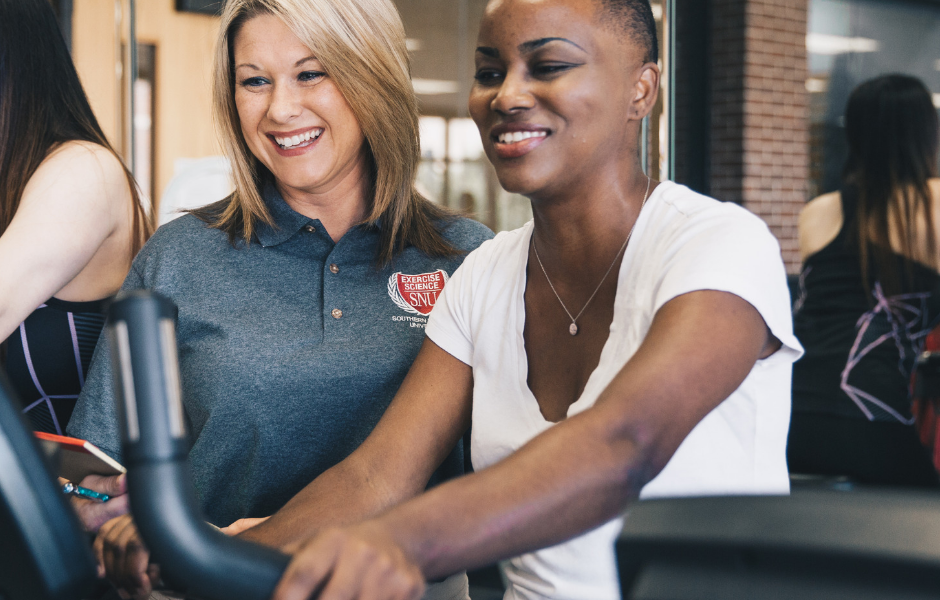 Carving out an exercise science career is what you make it. If exercise or human physiology is a passion, an exercise science degree opens you up to career paths based on whether you want to be hands-on with clients or patients or want to manage an exercise and health facility. A master’s in exercise science is a more professional degree and sets you apart.
Carving out an exercise science career is what you make it. If exercise or human physiology is a passion, an exercise science degree opens you up to career paths based on whether you want to be hands-on with clients or patients or want to manage an exercise and health facility. A master’s in exercise science is a more professional degree and sets you apart.
Here are a few exercise science career options:
1. Exercise Physiologist
Exercise physiologists evaluate how the human body reacts to certain exercise programs and regimens. Physical activity can affect individuals differently and can be impacted by factors such as age, general health and gender. Exercise physiologists evaluate and interpret data from various physiological tests. Most exercise physiologists work in cardiac and pulmonary rehabilitation and healthcare facilities.
2. Kinesiologist
A body in motion stays in motion. Kinesiologists study how the human body moves and how it can function better. Generally, these professionals work with people to get and stay fit, and to perform at an optimal level. Kinesiologists tend to work to prevent and manage the effects of injury and chronic illnesses. They believe in providing people with tools to manage their own health and fitness.
3. Strength and Conditioning Coach
Strength and conditioning coaches help build athletes. They are responsible for creating and monitoring exercise programs to build strength, endurance and speed. The plans are designed with the athlete’s age, gender, sport, physical capabilities and goals. Strength and conditioning coaches have a myriad of components they must monitor during their time with athletes. They will work constantly to maintain and improve an athlete’s health and physical well-being.
4. Wellness Director
Corporate organizations and community groups that are looking to improve their members’ health need a wellness director to plan and execute strategic health and wellness plans. Wellness directors must have a working knowledge and understanding of health policies, managerial skills, leadership qualities and wellness practices.
5. Cardiac Rehabilitation Specialist
Work hands on to help patients recover from life-changing diagnoses and procedures. As countries like the U.S. see a rise in heart disease across the population, as well as life-span increases, the need for cardiac rehabilitation specialists will continue to grow. In this role, you’ll be able to serve others through nutritional counseling, assessing data related to their case, guiding them through healing exercises, and setting a base for life-long health.
As more Americans struggle with their health and look to exercise to maintain or create a healthy lifestyle, the demand for professionals with a degree in exercise science will increase. Individuals with a master’s degree will set themselves up for greater leadership potential and increased career mobility.
At SNU, we offer a Master of Science in Exercise Science with two different tracks. You can attend one night a week to earn an M.S. in Exercise Science with an emphasis in Health and Human Performance or Health Promotion and Wellness. The Health and Human Performance track zeroes in on how the human body performs in an exercise environment, while the Health Promotion and Wellness track focuses on community health as a whole.
If you’re interested in any of the above exercise science careers, or have questions about SNU’s M.S. Exercise Science program, our advisors will be happy to connect with you and discuss how this degree can work for you.












